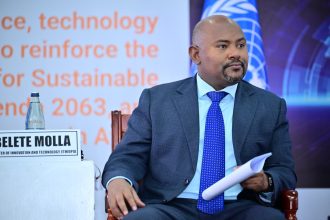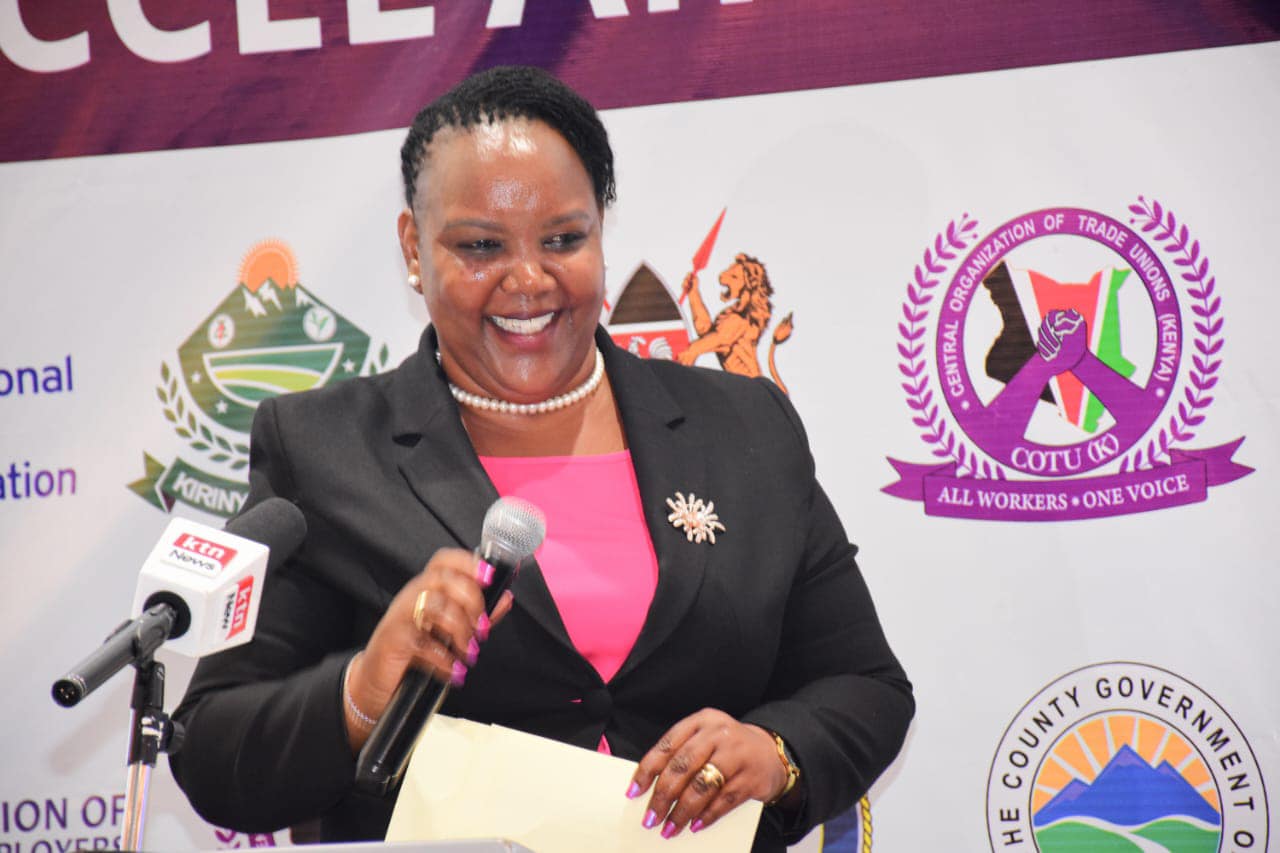By Lenah Bosibori
The Ministry of Labour and Social Protection, in collaboration with the International Labour Organization (ILO) has launched a project in Kenya targeting four Counties in tea and coffee sectors to combat child labour in the supply chains.
The project dubbed, ‘Accelerating Action on Elimination of Child Labour (ACCEL) in Africa, aims to fast-track action on elimination of child labour in Kenya’s four counties namely, Kirinyaga, Kericho, Meru and Kisii involved in tea and coffee value chains.
Speaking during the launch in Nairobi, Florence Bore the Cabinet Secretary in the ministry of Labour and Social Protection said that the government of Kenya as a member of the ILO is obligated to fulfil all the requirements of not only Convention number 82 on elimination of worst forms of Child labour but also on Convention No 138 on minimum age for admission to employment.
“The ministry of Labour and Social Protection is responsible for the prevention and protection of children against child labour and its worst forms, we are grateful for choosing to implement the second phase of the project in Kenya,” said Bore.
This landmark initiative, funded by the Ministry of Foreign Affairs of the Netherlands is being launched in Kenya following a successful implementation in six countries namely, Ghana, Cote d’Ivoire, Mali, Nigeria, Egypt, Uganda and Malawi across the continent.
Kenya’s involvement will focus on the agriculture sector, specifically targeting the tea and coffee value chains. The urgency of this endeavor is underscored by the 2020 Global Estimates of Child Labour, revealing a distressing rise in child laborers, particularly in sub-Saharan Africa. Against the backdrop of the COVID-19 pandemic worsening the situation, concerted efforts are crucial to achieve Sustainable Development Goal (SDG) Target 8.7 by 2025.
Amb. Maarten Brouwer, ambassador of the Kingdom of the Netherlands to Kenya noted that Putting children to labour is neglecting the potential future value of his or her labour that can be added through education.
“Child labour reduces the chances of the child to self-develop. It is therefore, economically unwise to do. Economically, it is short term gain at the expense of long-term value. Socially, it is excluding children from the chance to develop and to be of greater value to society once well educated,” said Brouwer.
Ms. Caroline Mugalla, the ILO Country Office Director, emphasized the strategic approach of the ACCEL Africa project, in targeting root causes of child labour in specific counties and supply chains collaborating closely with key stakeholders including the Ministry of Labour and Social Services, the Federation of Kenya Employers (FKE), and the Central Organization of Trade Unions (COTU), among others.
“For over three decades, the ILO has led global efforts to eradicate child labour, partnering with diverse stakeholders to uphold workplace rights. The 2022 Durban Call to Action underscores this commitment, urging strategies to combat child labour by improving decent work in supply chains and tackling its root causes. These include multi-stakeholder, whole-of supply chain, and integrated area-based approaches,” said Mugalla.
Mugalla also notes that the number of children engaged in child labour has risen. “The 2020 Global Estimates of Child Labour underscore a distressing reality: for the first time in two decades, the absolute number of children engaged in child labor has risen. This increase, entirely attributed to sub-Saharan Africa, reveals a staggering rise from 72.1 million to 92.2 million children in child labor. These figures, alarming as they are, do not encompass the exacerbated impact of the COVID19 pandemic, further worsening the plight of child laborers across the region,” said Mugalla.
It is imperative to recognize that progress in Africa is pivotal in determining the success of efforts to eradicate all forms of child labor by 2025, as stipulated in Sustainable Development Goal (SDG) Target 8.7.
Ms. Jacqueline Mugo, CEO of the Federation of Kenyan Employers, in her remarks highlighted the necessity of public awareness campaigns in combating child labour and emphasized the importance of social dialogue and collaboration among stakeholders.
Benson Okwaro, deputy secretary general COTU (K) noted; “in confronting the harsh reality of persistent child labour, we must recognize the urgency of a holistic strategy. The multifaceted nature of this issue demands a comprehensive approach, targeting the very roots that sustain it. Only then can we safeguard the rights, well-being, and future of our children, paving the way for a brighter.




